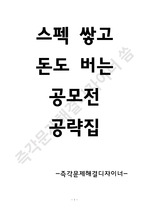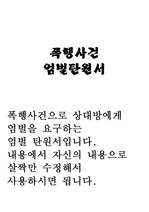평생교육 담당자 연구동향: 1998년-2016년 국내 학술지 게재 논문을 대상으로
* 본 문서는 배포용으로 복사 및 편집이 불가합니다.
서지정보
ㆍ발행기관 : 한국성인교육학회
ㆍ수록지정보 : Andragogy Today / 20권 / 1호
ㆍ저자명 : 현영섭
ㆍ저자명 : 현영섭
목차
Ⅰ. 연구의 필요성 및 목적Ⅱ. 이론적 배경
Ⅲ. 연구방법
Ⅳ. 분석결과
Ⅴ. 논의 및 결론
참 고 문 헌
한국어 초록
평생교육의 이론은 연구자의 몫이라면, 평생교육의 실천은 평생교육 담담자의 몫이다. 물론 이론과실천의 연결이라는 점도 중요하지만, 여전히 평생교육 현장 실천은 평생교육 담당자에 의해서 이루
어지는 영역이다. 이런 이유로 평생교육 연구에서 평생교육 담당자에 대한 관심은 지속되어 왔다.
그러나 평생교육 담당자를 어떻게 이해해야하고 또 어떤 연구들이 진행되었는지에 대한 전체적인
그림을 이해하지는 못하고 있다. 이에 본 연구는 국내 학술지에 게재된 평생교육 담당자 관련 논문
들을 분석하여 평생교육 담당자 연구동향을 파악하는 것을 연구목적으로 하였다. 연구목적을 달성
하기 위해 한국교육학술정보원의 학술데이터베이스를 활용하여 792편의 학술지 게재 논문을 검색
하였고 이 중 분석대상 논문으로 93편이 선정되었다. 93편의 논문에 대하여 연구물 특성, 연구 내
용 및 방법으로 구성된 분석틀에 의하여 빈도분석 등을 실시하였다. 분석결과, 첫째, 1998년 이후
관련 논문이 크게 증가하였으며, 특히 2011년 이후 급증한 것으로 나타났다. 그리고 연구주제나
논문수의 측면에서 3개의 시기(1998년-2005년, 2006년-2010년, 2011년-2016년)로 구분되
었다. 둘째, 연구주제의 경우 역량, 직무, 철학 및 인식, 전문성, 요구의 순으로 연구가 많았다. 셋
째, 연구방법 측면에서는 양적 연구가 다수였고, 질적 연구나 문헌 연구의 순으로 논문수가 많았
다. 이상의 분석결과를 기초로 논의 및 시사점을 제시하였다.
영어 초록
Lifelong education practitioners and researchers were two groups leading the area of lifelongeducation. Recently the number of practitioners in lifelong education had bean increased and
academic interests on them also increased. But we did not have a landscape of the studies and new
directions for future researches. So it was necessary to understand the research trends. The purpose
of this study was to investigate the research trends based on the analyses of articles about lifelong
education practitioners. For this purpose, 93 articles were collected from Korean Journals from 1998
to 2016, using KERIS(Korea Education and Research Information Service) DB. And according to the
research frameworks, contents and frequency analyses were performed. The findings were as in the
followings: First, the frequency of articles about lifelong education practitioners was increased
nowadays. Especially, since 2011 the frequency was rapidly increased. And a model of 3 periods or
steps(1998-2005, 2006-2010, 2011-2016) were suggested based on the quantity and theme of 93
articles. Second, some research theme such as competency, job, philosophy, professionalism, and
needs for training were researched frequently and repeatedly. Third, quantitative studies were
published more than qualitative or literature studies. Based on the findings, conclusions and
implications were discussed.


















